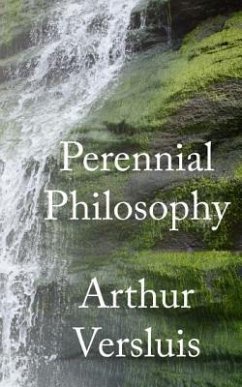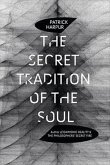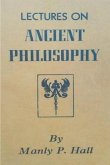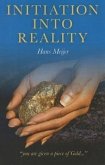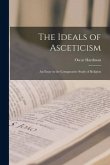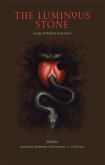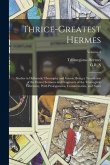In this lucid explanation of perennial philosophy, Arthur Versluis reveals this tradition-so often described as esoteric and inaccessible-to be closer to our interests and experience than many of us have realized. Versluis has distilled an immense amount of scholarship into this small volume, but its brevity is deceiving. Like the culmination to any alchemical work, _Perennial Philosophy_ is a powerful tincture that-once imbibed-transports receptive readers to a world in which they are part of a spiritual hierarchy that links heaven to earth. Arthur Versluis has distilled an immense amount of scholarship to produce a disarmingly accessible, lucid, and deeply penetrating study of the great philosophic traditions that underlie Western culture. Versluis concisely explains what perennial philosophy is and what it isn't. The clarity of his prose makes this deep book a pleasure to read. A remarkable achievement! -Gregory Shaw, author of _Theurgy and the Soul: The Neoplatonism of Iamblichus_ ***** This brilliant little book, written with stunning clarity, offers an entirely new perspective on what "perennial philosophy" actually means and entails. This is a return to the real philosophical quest, almost entirely forgotten by the academic world: a going beyond the limited self, to experience our kinship with the greater world and the deepest levels of reality, which results in a transformation of the self and a realization of our human nature. For anyone interested in the roots of our philosophical tradition, or what a living philosophy could look like today and in the future-a philosophy that actually inspires and fertilizes culture, art, and human experience-this book is indispensable. -David Fideler, author of _Restoring the Soul of the World_ and other books and essays. ***** This book is about transcendence: self-transcendence. It traces a pathway to such self-transcendence from Plato (Pythagoras and the Orphic mysteries), through Plotinus, Damascius, Meister Eckhart and Emerson. _Perennial Philosophy_ unveils a contemplative way often referred to as " mysticism" that leads to a selfless, compassionate caring for all existence, from the animate to the inanimate, since all that exists expresses divine creation. The book has no footnotes and yet is scholarly. It records a perennial way of being-in-the-world that contrasts sharply with the way most of us live and see, and is about a past that offers glimpses of a better future. To read it is to question the contemporary understanding of who we are, and what we are capable of becoming. It is medicine for difficult times. -Robert E. Carter, Trent University, author of _Encounter with Enlightenment_, _The Kyoto School_, and many other books. ****** This book is colloquial and conversational. It presents an overview of Platonism from the master himself to Emerson in the context of contemporary debates. The author is a devoted Platonist, and his presentation of their doctrines is perfectly orthodox, above all in the absolute priority he gives to intellectual vision, the Vision of the Good. This emphasis alone is a huge achievement. The book is remarkable also for its generosity of tone. To the enlightened eye, no doubt, everything is full of Being. But it is difficult to maintain at all times that warm dispassion which takes the whole world under its wing. The author achieves this simply through the quality of his discriminations. So sharp and apt are the distinctions he makes between competing contemporary doctrines the book is continually illuminating and never tendentious. This reader was forever saying "Ah!" -Roger Sworder, LaTrobe University, author of _Mathematical Plato_, and _Science and Religion in Archaic Greece_ as well as _A Contrary History of the West_
Hinweis: Dieser Artikel kann nur an eine deutsche Lieferadresse ausgeliefert werden.
Hinweis: Dieser Artikel kann nur an eine deutsche Lieferadresse ausgeliefert werden.

